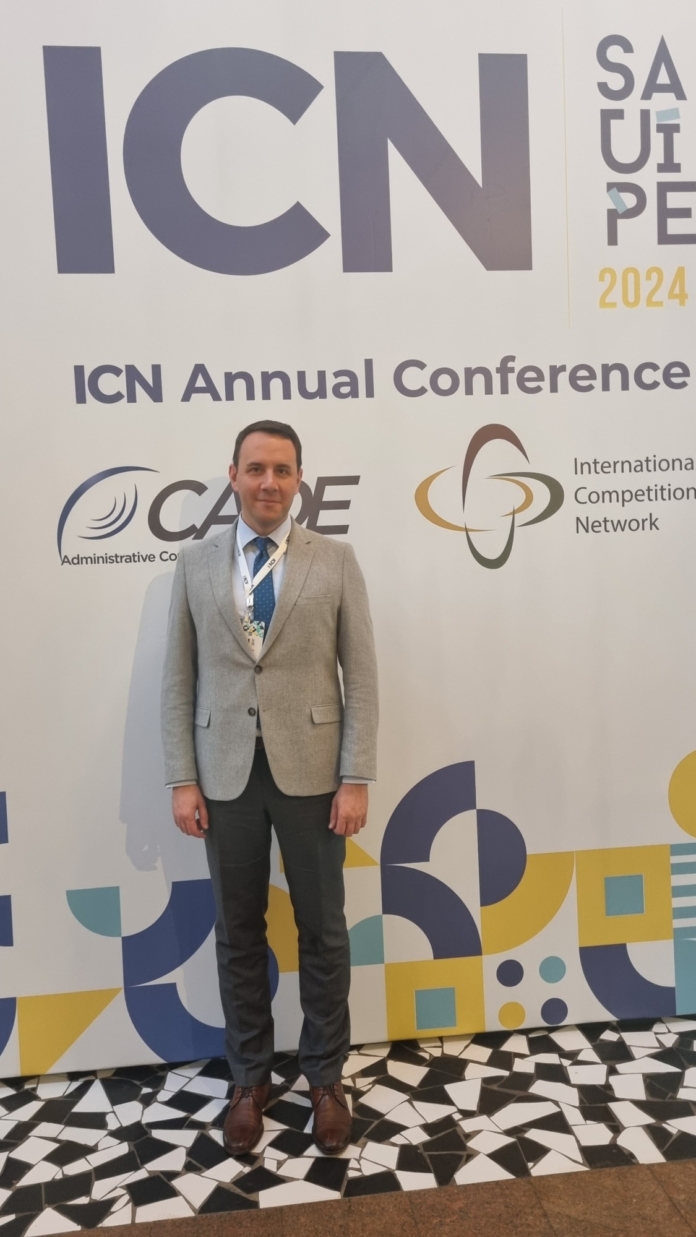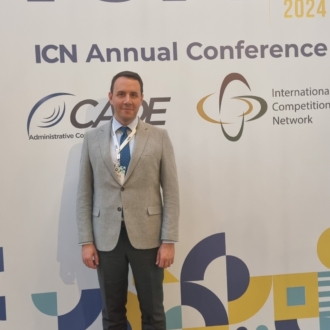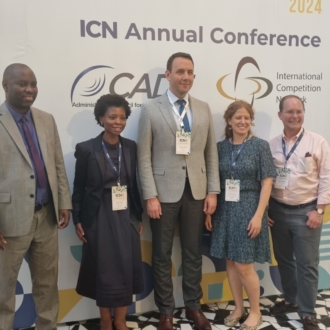On 14-17 May 2024, the President of the Competition Council, Alexei GHERÈšESCU, attended the Annual Conference 2024 of the International Competition Network (ICN), which took place in Sauipe, Brazil.
The main topics and topics of this year’s conference were: developments in the field of cartel prosecuting; performance of competition authorities, competition concerns in agriculture and food markets; unilateral conduct enforcement: current trends and challenges ahead; competition issues related to the activity of state-owned enterprises; tools and practices for effective and timely management of merger cases; the role of competition authorities in macroeconomic stabilization and growth; conducting market studies to understand competition in emerging markets; monitoring and evaluating the effectiveness of competition authorities, algorithmic collusion and other digital challenges in cartel enforcement, etc.
The event included a series of panels in which over 450 participants from almost 100 different jurisdictions, including, competition authorities, judges, economists and academics from all over the world have had the opportunity to intervene, exchange experience and disseminate knowledge and expertise in the field of competition policy.
Given the importance, timeliness and impact of the topics addressed during the event, the President of the Competition Council, Alexei GHERÈšESCU, participated with a contribution to the panel – “Competition enforcement in Agriculture and Food Markets: Reflections on pro-active research, monitoring, and price observatories” .
The speech of the President of the Competition Council focused on a series of significant challenges faced by the competition authorities in the field of agriculture and food, taking into account the specificity of this field. These include market concentration and vertical integration, lack of transparency in economic relations in the agricultural sector, inequality in bargaining power between different players in agricultural markets, and, problems of access to distribution chains for agricultural producers. All these points highlight the complexity of the problems encountered in the agricultural sector and the need for a comprehensive approach to effectively identify and address anti-competitive practices and promote healthy and fair competition in this area vital to the economy.
At the same time, were addressed the problem and the existing limits in obtaining information on anti-competitive practices in this field. The low efficiency of leniency tools and whistleblowers, particularly in a sector characterised by the strong dependence of small players on larger undertakings, is a major challenge. In this context, market enquires and advocacy are becoming essential tools for gathering information and increasing trust between the competition authority and market representatives. While the situation on national agricultural markets is substantially influenced by regional or even international markets, the development of tools and mechanisms for effective cooperation between states at the level of exchange of information and effective assistance in concrete investigations is becoming essential.
The President of the Competition Council intervened with a contribution to the meeting of the heads of the competition authorities dedicated to the competition problems related to the activity of state-owned enterprises. Challenges in this area have been noted by several heads of authorities, both in developed countries with a strong market economy and in transition countries.
During the conference, a series of meetings took place with the delegations of several EU countries and other regions, in order to facilitate the exchange of experience and to intensify bilateral cooperation relations.
By participating in this event, the Competition Council of the Republic of Moldova, being a small authority in a developing country, has the opportunity to present the specific challenges that may be common for many other countries of similar size or background or with similar features of their national economies. At the same time, the ICN Annual Conference is an excellent opportunity to provide us with new ideas about international best practices and specific methodologies and enforcement strategies in food and agriculture sectors, which proved to be of key importance for developing countries and emerging economies.










